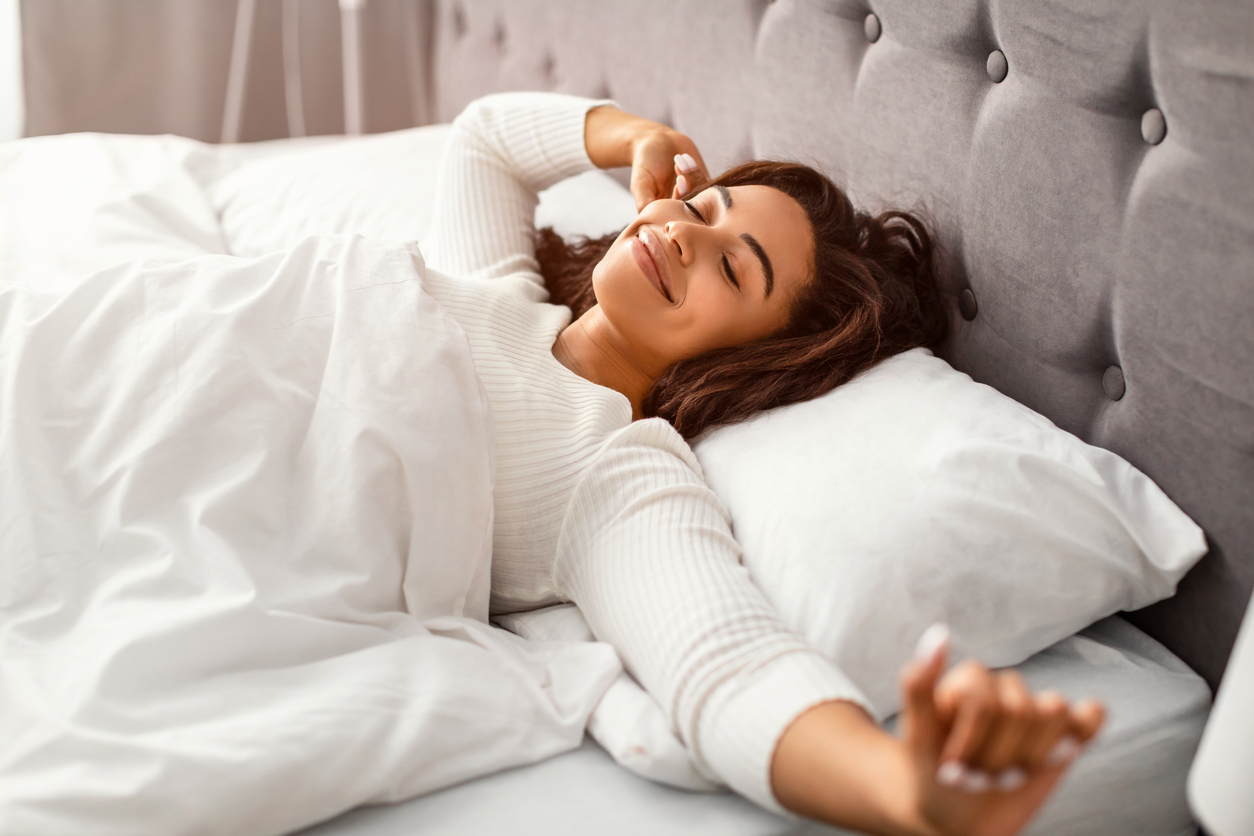
Sleep is one of the most important activities for maintaining good mental and physical health. It’s well noted that many people don’t get enough sleep, implying they don’t sleep enough hours at a time. It’s also important to know that some people don’t get enough quality sleep, which means they don’t sleep enough for their bodies to work through the four stages of the sleep cycle. That can lead to numerous problems.
What Happens During Sleep?
During sleep, the body’s activities slow down. During this time, muscles are repairing the damage created throughout the day. The bones grow, and hormones become more balanced. Memories are sorted, and your body is overall replenished of the important energies it needs to function properly.
Understanding the 4 Stages of Sleep

When a person falls asleep, they move through four stages of sleep. Each one does something different. There are two broad categories of sleep: Rapid Eye Movement (REM) and non-REM sleep, called NREM sleep. Most of the time, adults fall asleep in a drowsy state and enter into NREM sleep.
It’s possible to divide NREM into three stages: State N1, Stage N2, and Stage N3. Most sleep stages last about 90 to 120 minutes. Those who get a typical amount of sleep will usually have four to five cycles that occur through this process. NREM sleep tends to be longer and makes up for more of the sleep cycle at the start of the night. By the end of the night, there’s an increased amount of REM sleep likely to occur.
Let’s break down each of the 4 stages
NREM Stage N1
During this time, the heartbeat and breathing rates slow down. Your muscles begin to relax. Most often, this stage only lasts a few minutes. It’s the period where you’re falling asleep. During this type of sleep, your brain is producing beta waves, which are small and fast brainwaves that mean the brain is engaged and active. This leads to the development of alpha waves, which help to transition you into a deeper level of sleep.
NREM Stage N2
The heartbeat and breathing rates slow down even more during this next step. There’s no eye movement, and your body temperature naturally drops. This typically lasts about 25 minutes. Your brain is still active during this time, creating rhythmic brain wave activity. These are often called sleep spindles.
NREM Stage N3
This is the deepest sleep stage, where the heartbeat and breathing rate are the lowest. There’s still no eye movement, and your body is fully relaxed. Delta brain waves are present here. This is also when most tissue repair and growth and cell regeneration tend to happen. Your immune system is also strengthening during this period.
REM Stage R
In REM, a person is dreaming. Eye movements become rapid. In REM, a person’s breathing and heart rate increase, and brain activity can be significantly higher than it was prior. Limb muscles are paralyzed during this time of the night. After your body remains in REM, you’ll likely move to NREM stage 2 again to cycle through the process. Most often, REM happens about 90 minutes after you fall asleep.
You have no control over the sleep cycle. If you wake up in the middle of it, your body will start over and naturally progress through the same process. If you are constantly woken up, your body cannot work on the restoration and healing processes that happen at each level of the sleep cycle. That can impact your overall physical and mental health.
What Are the Effects of Not Getting Through the Sleep Cycle?
 Each of the four stages is important. If you’re not asleep long enough to cycle through them, you could see a number of health complications as a result. There’s no hard and fast rule as to what happens if you wake up in the second stage or the third stage, but some of the problems that you may have by not cycling through enough during the night include the following:
Each of the four stages is important. If you’re not asleep long enough to cycle through them, you could see a number of health complications as a result. There’s no hard and fast rule as to what happens if you wake up in the second stage or the third stage, but some of the problems that you may have by not cycling through enough during the night include the following:
- Memory issues develop because your brain isn’t able to process memories and store information properly during the evening hours.
- You may have trouble with thinking, decision making, and concentration, often as the result of not giving the brain enough time to process information.
- The immune system may suffer as it is not given enough time to rejuvenate and recover during the sleep process. This may mean you are at a higher risk for viruses and illnesses, creating more significant problems for you.
- Hormonal imbalances may occur. Some people may experience becoming more overweight as a result of low sleep levels. Some also develop high blood pressure and have an increased risk of heart disease. Sleep deprivation also lowers sex drive and increases the risk for diabetes.
Is It Possible to Make Up for Lost Sleep?
It may seem like it’s possible to catch up on sleep over the weekend after spending the whole week getting just a few hours a night. That’s not the way it works. Remember, your brain moves through four stages and multiple cycles of those stages each night. It’s getting to do this for 7 to 9 hours a night that provides enough recovery time for your body. If you’re only giving your body a few hours of sleep – or you wake up numerous times during the night – it’s not going to be possible to make up for it at any other time.
How Do Healthy Habits Play Into the Sleep Cycle?
There is a strong connection between sleep and health. Your diet and exercise play a role in how well you sleep. Stress, relationship discomforts, and even medications can interfere with the brain’s ability to work through each of these stages, sometimes due to the presence of hormones that keep you stimulated.
If you consume too much caffeine and sugar during the day, that’s going to make falling asleep harder to do. Eating too close to bedtime keeps your metabolism stimulated when it should be slowing down.
Exercise is a good way to help reduce stress and lower blood pressure, which can help you sleep better. It can also help with weight management.
Getting a Good Night’s Sleep Starts with the Right Tools
Having the best mattress under you each night leads to the best sleep possible. It helps you to feel at ease, rest the mind, and encourage you to fall asleep in a healthy manner. If you’re uncomfortable, tossing and turning, or too hot, you may find it difficult to fall asleep. Rather, the best mattress to keep you cool and comfortable allows you to slowly ease into a restful sleep by supporting your body and creating comfort.
Take a closer look at the best mattress brands in Las Vegas and St. George. You can get the best sleep possible with a better mattress.
